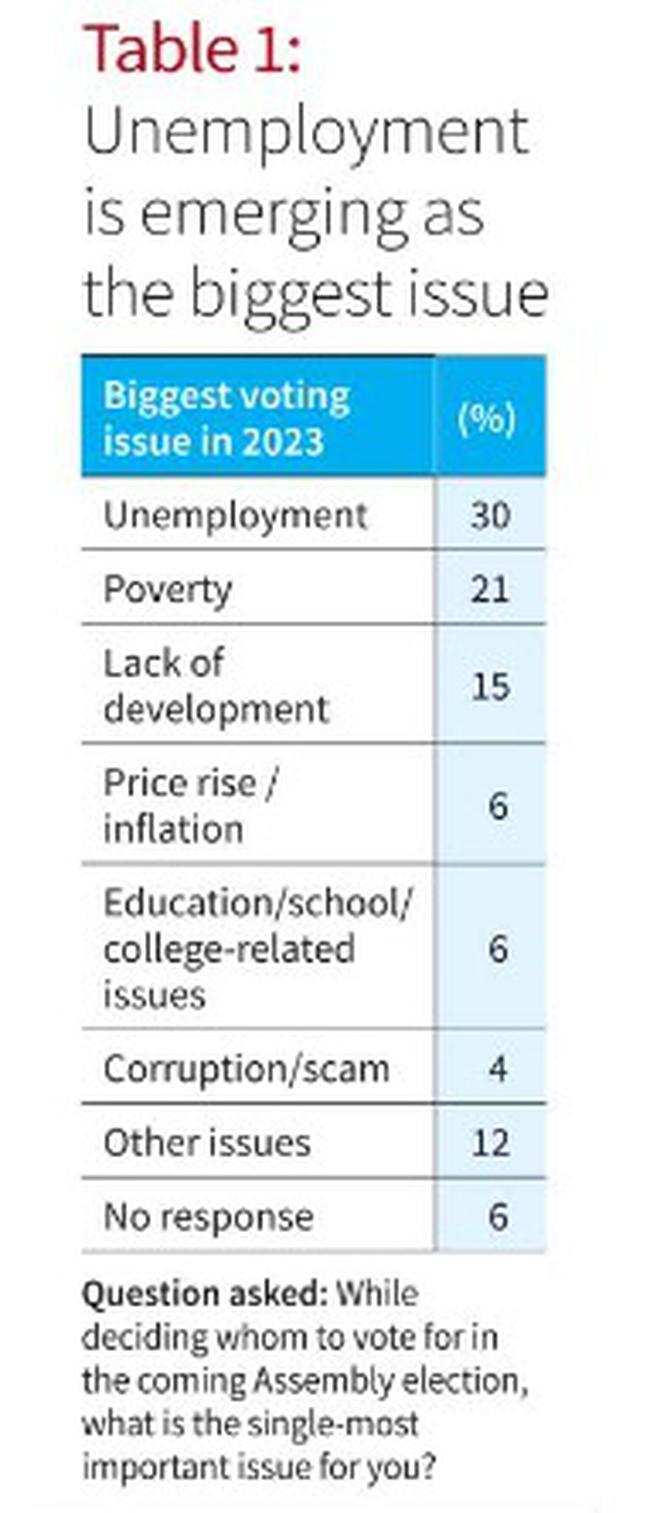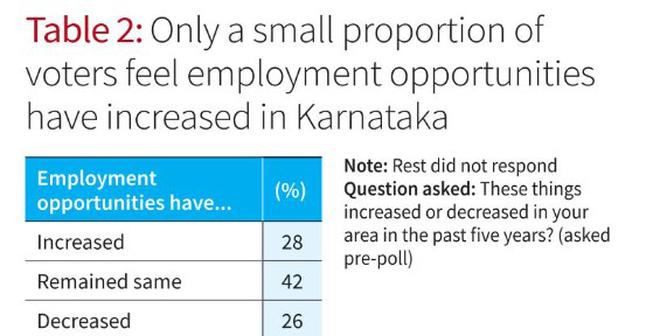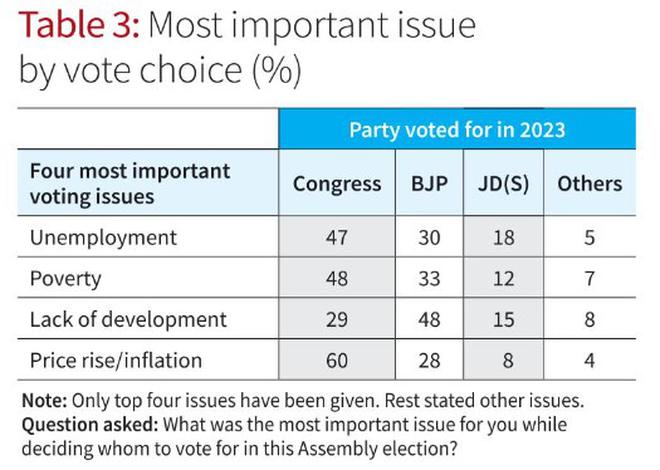Speaking at the inauguration of the Indian Institute of Technology, Dharwad in March, Chief Minister Basavaraj Bommai claimed that there was “minimum unemployment” in Karnataka and the Union government was behind the creation of 33 lakh jobs in the State in the past five years, with 13 lakh created in the past year alone.

However, the Lokniti-CSDS post-poll survey data show that unemployment was the biggest voting issue for voters in the State. Asked an open-ended question, close to three in 10 voters (30%) stated unemployment to be the biggest issue while voting in this election (Table 1).
Poverty stood at a distant second, with 21% saying that it was the biggest issue. Price rise was mentioned by 6% of voters as the main issue, thus bringing economic issues to the fore, with nearly 60% voters drawing attention to economic issues more generally.
Lack of development was reported by 15% of voters and poor education was mentioned by one in 10 voters. Congress leader Rahul Gandhi, in his campaign speeches in the State, had raised the question of corruption and how the ruling BJP government was silent on corruption done by the government. However, only 4% reported it to be the single most important voting issue for them in these elections. Although, as the piece on corruption shows, the issue did have considerable salience.
2023 Karnataka Assembly elections | Lokniti-CSDS postpoll study
In the 2018 Assembly election, a mere 3% voters reported unemployment to be an issue. For the majority (27%) of voters, development was the biggest issue. Back then, no issue, other than development crossed double digits. This corroborates the fact that unemployment was one of the major pressing issues for voters in this election.

Furthermore, about a quarter (26%) reported a decrease in employment opportunities and four in 10 (42%) reported no change in employment opportunities in the past five years. Only close to 30% reported an increase in jobs in the State (Table 2).
Looking at the vote choice of those who stated unemployment, poverty, lack of development and price rise as issues, we note that barring those who stated development as the most important issue, the Congress was a preferred choice for everyone else.

Close to five in 10 of those who stated unemployment and poverty as the biggest issue in this election voted for the Congress (47% and 48%, respectively) as compared with three in 10 for the BJP. For the 6% who stated price rise as the issue, the Congress was the preferred party for six in 10 voters and the BJP for three in 10 voters.
What is interesting is that for the 15% who stated lack of development as the main voting issue, a higher proportion voted for the BJP (48%) than the Congress (29%) and the JD(S) (15%). The victory of Congress in the State can be partially attributed to the BJP’s inability to tackle unemployment and poverty in the State.
The authors are researchers at Lokniti-CSDS







